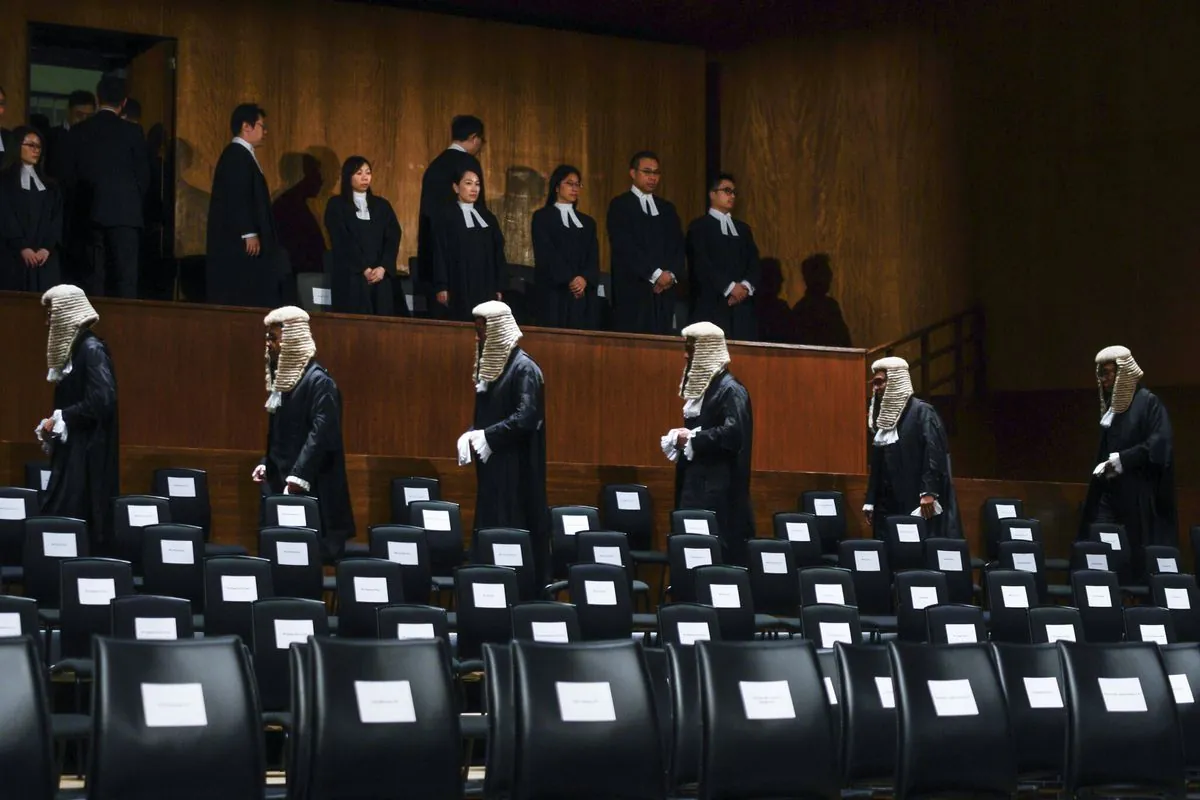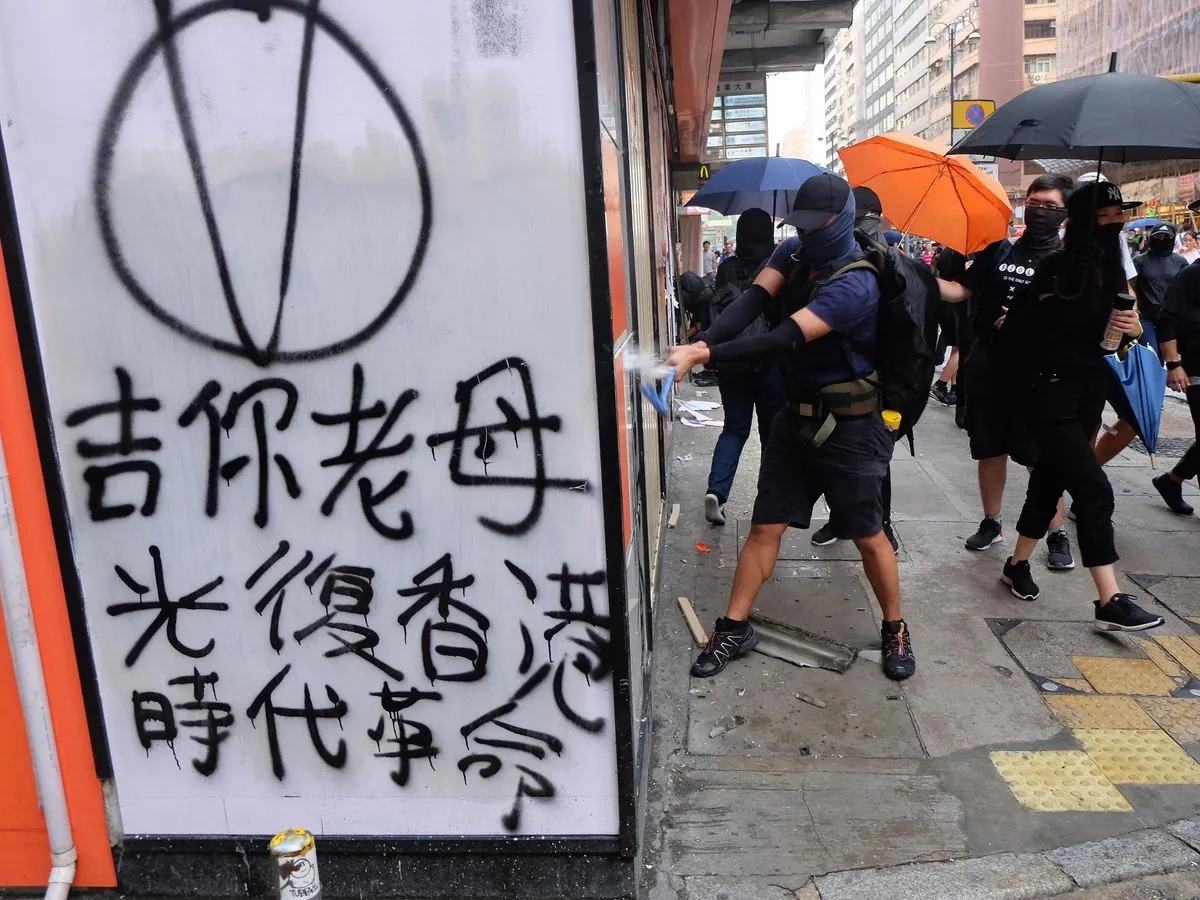Hong Kong Democracy Activists Await Sentencing in Landmark Security Trial
45 Hong Kong activists face potential life sentences in a national security case. The trial, stemming from a 2020 unofficial poll, highlights ongoing tensions between pro-democracy movements and authorities.

In a significant development for Hong Kong's political landscape, 45 pro-democracy activists have concluded their final pleas in a high-profile national security trial. The case, which has drawn international attention, centers around allegations of a "conspiracy to subvert state power" through an unofficial poll conducted in 2020.
The charges stem from a pre-selection process organized by the activists to choose candidates for a planned legislative council election. Prosecutors argue that this action was part of a broader strategy to force the government to meet demands raised during the 2019 protests, which included calls for universal suffrage.
Under the national security law imposed by Beijing in 2020, the accused face potential life sentences. This legislation, enacted in response to the widespread demonstrations that shook Hong Kong in 2019, has significantly altered the city's political and legal landscape.

The case highlights the complex relationship between Hong Kong and mainland China since the 1997 handover. The "One Country, Two Systems" principle, established to preserve Hong Kong's distinct legal and political systems, has come under increasing strain in recent years.
Among the defendants, diverse responses to the charges were observed. Gwyneth Ho, a former journalist turned activist, chose not to offer any mitigation, potentially risking a longer sentence. Her friend, Anthony Wong, expressed admiration for her steadfastness, stating, "I think she has been very persistent with her own stance. I hope she can continue to stay very strong."
In contrast, Owen Chow maintained his belief in a democratic future for Hong Kong, writing in his mitigation letter, "I don't know how long it will be until I regain my personal freedom. I just hope that when I step out of prison, I can proudly say to everyone: 'I didn't waste all these years'."
Ventus Lau, defending himself, emphasized that his participation in the primary was not intended to be illegal, noting that legal professionals had endorsed the process and police had facilitated campaign activities.
The judges' responses to mitigation requests have been firm. When Mike Lam, a prosecution witness, requested community service, the judges swiftly rejected it as "unreasonable."
"An unreasonable request made before....three judges tripled the unreasonableness."
This trial occurs against a backdrop of significant changes in Hong Kong. Since the implementation of the national security law, the city has seen a decline in press freedom rankings and the exodus of several pro-democracy figures. The law's extraterritorial reach has further complicated the situation for activists both within and outside Hong Kong.
As the city awaits the sentencing decision, the case continues to underscore the ongoing tensions between pro-democracy movements and authorities in Hong Kong, a global financial hub with a population of approximately 7.5 million.


































